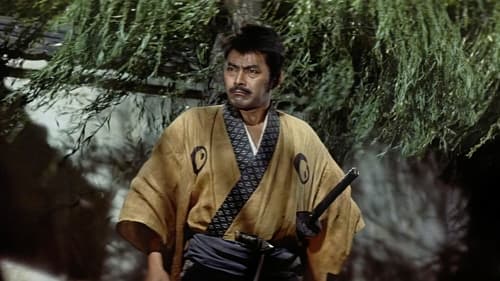
The story tells of a group of samurai who were left leaderless (becoming ronin) after their daimyo (feudal lord) was forced to commit seppuku (ritual suicide) for assaulting a court official named Kira Yoshinaka, whose title was Kōzuke no suke. The ronin avenged their master's honor after patiently waiting and planning for over a year to kill Kira. In turn, the ronin were themselves forced to commit seppuku for committing the crime of murder.

A skilled country doctor's talents are such that he can even perform operations as difficult and novel as removing a patient's kidney for the first time in Japan. Unfortunately for him, however, his wife's addiction to gambling is of such a magnitude that he is down to selling his underwear to make money. The image sticks and he becomes known as the 'underwear doctor.' On the other hand, his successful surgery's patient is so grateful he himself wants to become a physician.
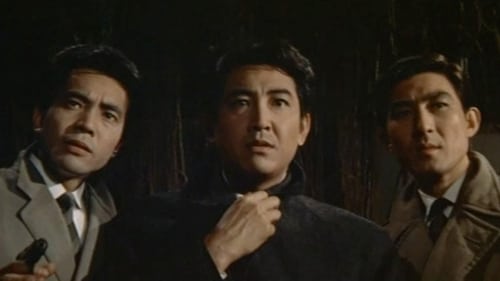
一人の男が銃剣で刺殺されるという事件が起こった。犯人を追いつめたものの、男の姿は密室から忽然と消えうせていた。事件を追う桐岡記者は、物質転送を研究する仁木博士が、犠牲者と犯人・須藤を繋ぐカギであることを知る。犠牲者を含む大西たちは、14年前、須藤と仁木博士を生き埋めにしていたのだった……。
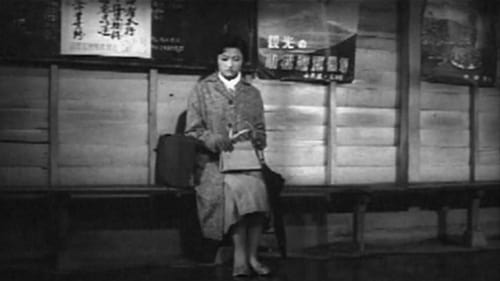
An Ishiro Honda film.

It's a man's world. Shimamura, an artist, comes to this snowbound town to rejuvenate himself. He connects with Komako, a geisha he met on a previous trip, and it seems like love. She's the foster daughter of a local family, almost engaged to the family's son Yukio, now dying of consumption. He's tended by his sister Yuko who's angry at Komako for abandoning her brother. Shimamura returns to Tokyo but promises he will be back soon. In anticipation of his return, Komako breaks with her patron and her family loses their home. Complications arise when Shimamura doesn't come back as promised. Then Komako discovers that he and Yuko knew each other in Tokyo. Can Komako escape destiny?

Osumi
九州の阿蘇山にある炭坑で、坑道に巣くう巨大なヤゴ・メガヌロンの幼虫による犠牲者が発生した。事件を調査する河村は、その怪物をもしのぐ、巨大な怪鳥の姿を目撃する。その怪鳥・ラドンこそ、各地で相次ぐ災害の元凶だったのだ。その音速を超える飛翔速度はソニックブームを起こし、街はまたたくまに壊滅していく。そして、自衛隊の圧倒的な火力によってラドンを追いつめたかに思われたとき、もう一体のラドンが現れたのだった……。

With one of the busiest film industries in the world, Japan was able to submit several films into competition at the 1957 Berlin Film Festival. One of the best of these was Arashi, directed by Hiroshi Inagaki of Rickshaw Man fame. Anticipating Hollywood's Table for Five by nearly a quarter of a century, the film concerns the efforts by a recently widowed high-school teacher to raise his four children alone. Chihu Ryu is terrific as the central character, while Izumi Yukimura is even better as Ryu's eldest daughter. For reasons unknown, Arashi is often omitted from "official" lists of Inagaki's films.

The Boy's Mother (uncredited)
日本の「ゴジラ」(1954年)に、ハリウッドで追加撮影されたシーンを加えて再編集されたハリウッド上映版。
アメリカの新聞記者スティーブ・マーティン(レイモンド・バー)は、カイロへの取材に向かう途中に立ち寄った日本の東京で、ゴジラの上陸に遭遇する。スティーブの回想によって、ゴジラに蹂躙東京の惨状が描かれる。

Otatsu
An Ishiro Honda film.
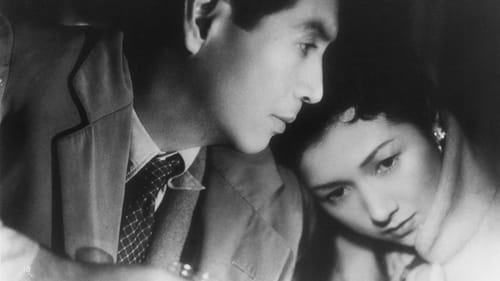
A married Japanese forester during WWII is sent to Indochina to manage forests. He meets a young Japanese typist and promises to leave his wife. He doesn't and after the war, she turns up and the affair resumes.

(uncredited)
An Ishiro Honda film.
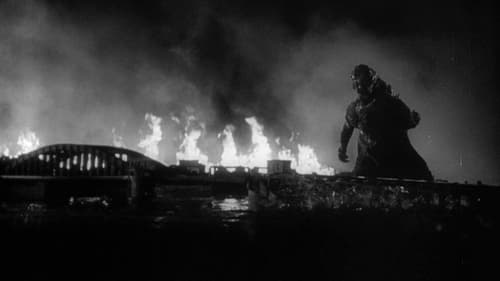
Mrs. Yamada
原水爆実験の影響で、大戸島の伝説の怪獣ゴジラが復活し、東京に上陸。帝都は蹂躙され廃墟と化した。ゴジラ抹殺の手段はあるのか・・・。戦後の日本映画界に特撮怪獣映画というジャンルを築いた、記念すべきゴジラ映画第1作。核の恐怖を描いた、本多猪四郎の真摯な本編ドラマと、円谷英二のリアリズム溢れる特撮演出が絶妙のコンビネーションを見せ、「ゴジラ」の名を一躍世界に轟かせた傑作。
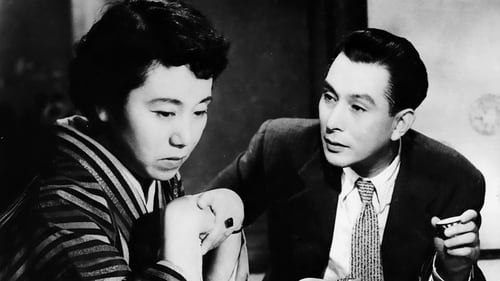
What is the life of a Geisha like once her beauty has faded and she has retired? Kin has saved her money, and has become a wealthy money-lender, spending her days cold-heartedly collecting debts. Even her best friends, Tomi, Nobu, and Tamae, who were her fellow Geisha, are now indebted to her. For all of them, the glamor of their young lives has passed; Tomi and Tamae have children, but their children have disappointed them. Kin has two former lovers who still pursue her; one she wants to see, and the other she doesn't. But even the one she remembers fondly, when he shows up, proves to be a disappointment.

A legendary gangster raises himself out of a small town and gathers followers on his rise to power.
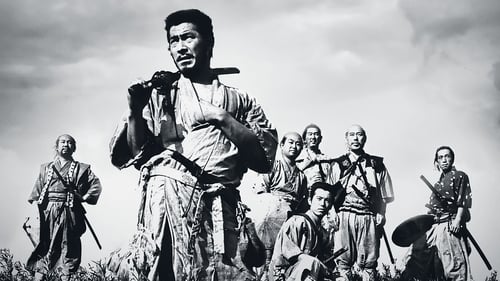
Woman Farmer in front of Gono
麦の刈入れが終わる頃。とある農村では野武士たちの襲来を前に恐怖におののいていた。百姓だけで闘っても勝ち目はないが、麦を盗られれば飢え死にしてしまう。百姓たちは野盗から村を守るため侍を雇うことを決断する。やがて、百姓たちは食べるのもままならない浪人たち7人を見つけ出し、彼らとともに野武士に対抗すべく立ち上がる……。
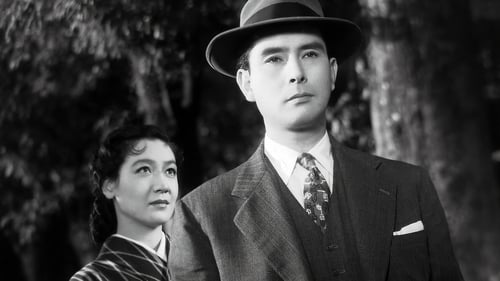
成瀬巳喜男監督が川端康成の同名小説を映画化した原節子の代表作の一つ。鎌倉を舞台に、老境に入った男が、同居する若く美しい息子の嫁に抱く複雑な心模様を丁寧に描く。
鎌倉で息子夫婦と暮らす尾形信吾は、老いを感じ、寂しさを感じる日々を送っていた。息子・修一の浮気に耐える嫁の菊子を不びんに思う信吾は、いつしか菊子にひかれるようになるが、やがて菊子の妊娠がわかり…。
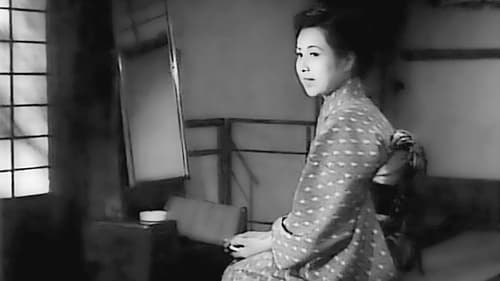
Ten years into a marriage, the wife is disappointed by the husband's lack of financial success, meaning she has to work and can't treat herself and the husband finds the wife slovenly and mean-spirited: she neither cooks not cleans particularly well and is generally disagreeable. In turn, he alternately ignores her and treats her as a servant. Neither is particularly happy, not helped by their unsatisfactory lodgers. The husband is easily seduced by an ex-colleague, a widow with a small child who needs some security, and considers leaving his wife.

A married couple looking for an apartment move in with the husband's co-worker, a widower. The husband becomes jealous of the widower and his wife.

Shunpei's wife Miyo
When a group of young geologists declares a mountainside marked for residential development unstable, they are met with scorn on two fronts. On one end, they must contend with the local villagers who balk at the prospect of relocation; on the other, they face the ambitions of the headstrong lumber baron, whose actions will only further destabilize the land. Their pleas for reason ignored, the scientists can do little but observe as nature runs its inevitable course.

Cleaner
Melodrama by Kon Ichikawa
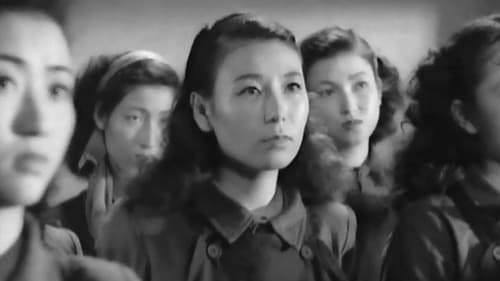
The critical establishment was clearly not prepared to accept a woman's prison film featuring former prostitutes recovering from venereal diseases, unwanted pregnancies, and estranged lovers. With its cat fights, hysterical tantrums, film noir lighting, and dramatic music, White Beast is indicative of the new influences of the Hollywood psychological thriller on Naruse. Caged (John Cromwell, 1950) initiated a cycle of women's prison movies in the United States that may or may not have been shown in Japan, but the stylistics of White Beast draw on the same paranoid woman's films and film noir conventions that preceded the American cycle.
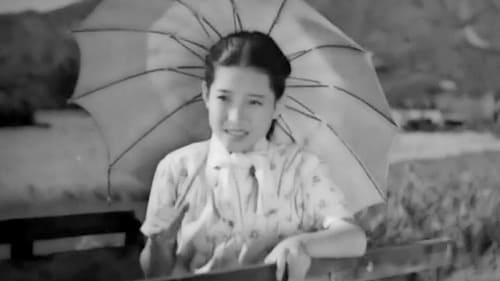
Three humorous love stories set in rural Japan.

Female Teacher A
Slice of life film centered around a couple of years in the life of a rural high school girl.
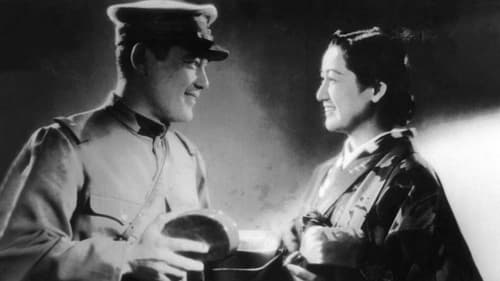
In this semi-documentary, an older locomotive driver is tasked with training younger ones and is currently training two in particular. The old man is finding the task overwhelming as it is hard work with practical lessons and classroom components. His wife has died, but he has three daughters with the oldest taking care of her younger siblings.
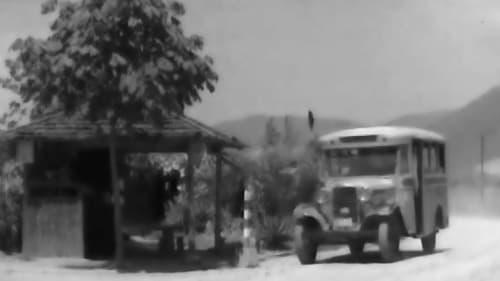
Okoma's mother
Okoma, a witty young woman working as a conductor in an old, rickety bus in Kōfu, Yamanashi (rural Japan), has a creative idea that could avert the dwindling number of passengers when her job and the bus company itself are at stake.

Japanese war-era film

Ine Onoda, the eldest daughter of a poor family of farmers, raises a colt from birth and comes to love the horse dearly. When the horse is grown, the government orders it auctioned and sold to the army. Ine struggles to prevent the sale.

A Fond Face from the Past is also set in a rural community, specifically a village outside Kameoka, near Kyoto. In some ways this short, thirty-six-minute film is Naruse's most moving negotiation of the militarist restrictions of the time, perhaps because it is also his most direct engagement with the culture of war. When a newsreel comes to Kameoka featuring a local man named Yoichi, it causes some excitement in the community and, of course, in Yoichi's own family. First of all his mother makes the newsreel (Nippon News, no. 14), which begins with the same marching music that opens his own film, followed by a curious baby judging context in Los Angeles featuring two hundred Japanese babies. Released in January 1941, almost a year before the pacific war begins, this “found footage” is indicative of Japanese imperialist ambitions beyond Asia long before Pearl Harbor.

This film depicts a troupe of wandering kabuki players traveling through rural Japan.

The only son of a sushi chef hates sushi and decides to leave home to search for a job and make his own way.




















